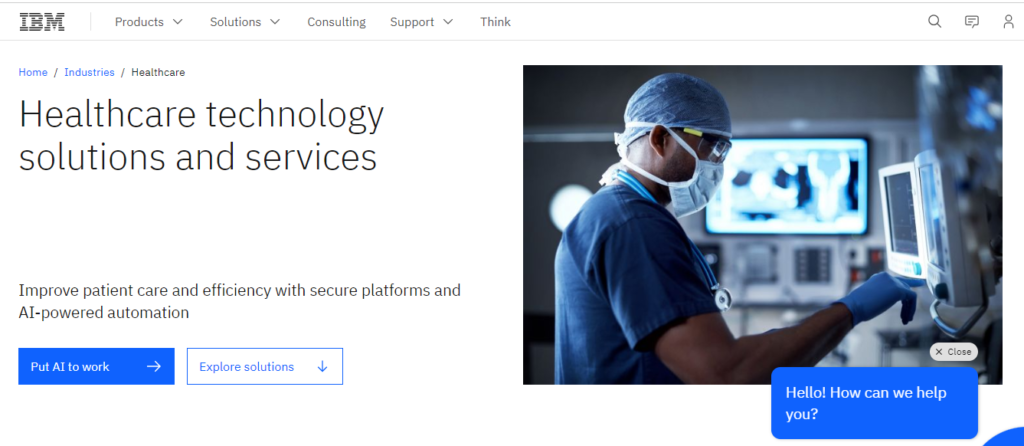
IBM Watson Health
IBM Watson Health, a division of IBM, aims to revolutionize healthcare using artificial intelligence (AI) and data analytics. By harnessing the power of AI, Watson Health focuses on improving patient outcomes, reducing costs, and streamlining healthcare processes. Here’s a concise look at its history, services, and performance.
History and Background
IBM Watson Health traces its origins to IBM’s Watson supercomputer, which gained fame in 2011 after winning Jeopardy!. Building on this technology, IBM launched Watson Health in 2014 to apply AI in healthcare. Over the years, Watson Health expanded by acquiring companies like Truven Health Analytics, Explorys, and Phytel, enhancing its healthcare data and analytics capabilities.
Services Offered by IBM Watson Health
Watson Health offers several AI-driven services aimed at improving healthcare across various sectors:
Watson for Oncology
This tool helps oncologists diagnose and recommend personalized cancer treatments by analyzing vast datasets of medical records and research.
Watson for Drug Discovery
Uses AI to help pharmaceutical companies accelerate drug development by analyzing research and clinical trial data to identify promising drug candidates.
Watson Health Cloud
A cloud-based platform that integrates health data from multiple sources, enabling better decision-making and care coordination.
Watson for Clinical Trial Matching
AI-powered service that matches patients with appropriate clinical trials, speeding up research and treatment development.
Watson Health Insights
Provides healthcare organizations with actionable insights by analyzing operational, financial, and clinical data to enhance decision-making and efficiency.
Performance and Challenges
While IBM Watson Health has made notable contributions to healthcare, it has faced some challenges:
Successes
Watson has helped healthcare providers make more informed decisions, particularly in oncology and drug discovery. Its partnerships with organizations like the American Cancer Society and pharmaceutical companies have driven innovation.
Challenges
Watson Health has encountered operational hurdles, especially with its Watson for Oncology tool, which struggled with the accuracy of treatment recommendations in real-world settings. Additionally, Watson Health has not met IBM’s financial expectations, prompting discussions about its future direction.
The Future of IBM Watson Health
IBM is shifting its focus toward cloud computing and AI solutions. This strategic shift may impact Watson Health’s future, with potential divestiture or integration into IBM’s broader cloud and AI infrastructure. Despite challenges, Watson Health’s work in AI-driven healthcare continues to have a lasting impact on personalized medicine and clinical research.
Summary
IBM Watson Health has made significant strides in transforming healthcare through AI and data analytics. While it faces challenges, its services continue to offer valuable tools for improving patient care and healthcare efficiency. The future of Watson Health will likely depend on its ability to evolve and integrate within the rapidly changing healthcare landscape.



